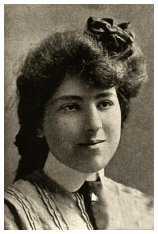“Whatever is true, whatever is honorable, whatever is just, whatever is pure, whatever is lovely, whatever is commendable, if there is any excellence, if there is anything worthy of praise, think about these things.” -Phil 4:8

This principle of focusing on and savoring the good, true and beautiful has emerged as a theme in the media I’ve been consuming lately.
As the world remains in tenuous and disquieting times, it’s necessary to fill our minds and hearts with material that nourishes and strengthens in order to counteract that darkness and frustration.
I decided I’d like to share a few of the soul-filling resources, which have been gifts to me. (All links included at the end.)
1) Bishop Barron’s Sermons from Word on Fire podcast.
Bishop Barron is renowned for his online ministry of evangelization engaging the culture and sharing the truth of Christ. Each week, he posts a 15-min sermon based on the Sunday Gospel reading for the Catholic Mass. I enjoy listening to him because he not only draws on theology and philosophy but also has a depth of knowledge in literature and history. He’s learned and articulate but also gets down to practicalities and real-life applications of the Gospel. He helps to make you smarter and holier!
2) The Book Club from PragerU.
This is a monthly podcast ( you can also watch online) hosted by author and commentator Michael Knowles in which he discusses a classic work of literature or history with a guest. Everything from Pride and Prejudice to Shakespeare to 1984 has been the topic of this show. He even interviewed Bishop Barron about the book of Genesis from the Bible.
Sometimes it takes a more political bent and/or brings in current events in the discourse around such books as 1984 or Booker T. Washington’s Up from Slavery, but I think it’s an important exercise to listen to his guests’ perspectives on the contemporary lessons we can glean from these classic works, even if we don’t arrive at the same conclusions.
3) Joy Clarkson’s podcast Speaking with Joy is a soothing, thoughtful, delightful listen for those interested in discussions of faith, art, books, beauty and life. Clarkson describes herself as an “evangelist for all things good, true, and beautiful” and I believe that is an apt depiction. I only recently discovered Joy on her Instagram page (@joynessthebrave, give her a follow) and from there, I found her podcast. It truly felt I had a heavenly guide leading me to these bountiful sources of inspiration and nourishment – that’s how much I’m enjoying them.
Through Joy, I discovered the rest of the Clarkson family, including Sarah Clarkson (@sarahwanders on Instagram) the author of my next recommendation and the “book” mentioned in this post’s title, Book Girl: A Journey through the Treasures & Transforming Power of a Reading Life.

Part memoir, part practical guide, part love letter to stories, Book Girl is both a work of beauty in itself and an arrow leading the reader to more encounters with loveliness, wisdom, whimsy, adventure and spiritual sustenance through books. It includes more than 20 reading lists!
Clarkson’s writing is poetic, vivid and heartfelt. One can feel her passion for story and its capacity to transmit beauty, goodness, and truth in every word she writes. I would love to have a cup of coffee with her (and her sister Joy) and indulge in a long conversation about our favorite books.
These four resources, I think, are true gems. I hope they are havens of delight, inspiration, and stimulation to you just as they have been for me.
https://podcasts.apple.com/us/podcast/the-book-club/id1495731488.
https://podcasts.apple.com/us/podcast/speaking-with-joy/id1310614879.





